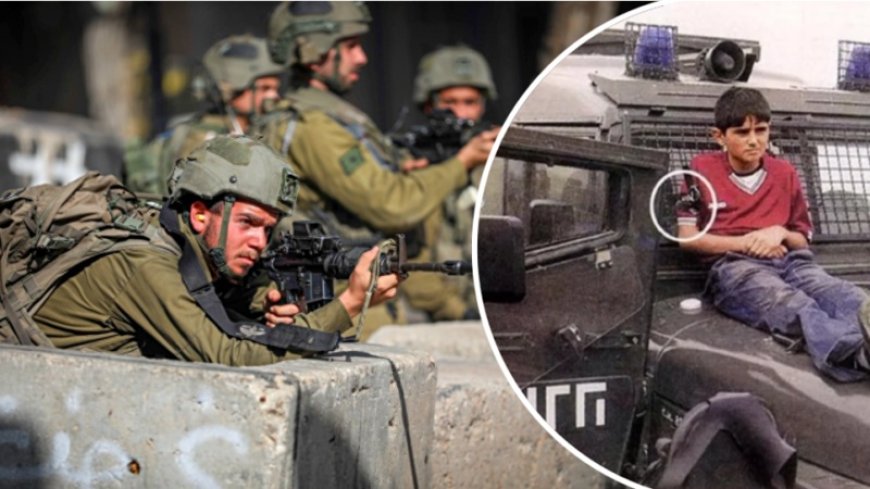How is Israel using Palestinians as human shields?
Reports of Israel deploying Palestinians as human shields have attracted a lot of attention as their allegations of such behavior draw from many sources.

Reports of Israel deploying Palestinians as human shields have attracted a lot of attention as their allegations of such behavior draw from many sources. One such claim came in The New York Times, when unidentified Palestinians and Israeli troops claimed to have used Palestinian citizens in military operations within Gaza.
These charges still cause strong arguments regarding human rights and military behavior in the area even though official inquiries have not found any proof for them. Under searches of Palestinian buildings or sites suspected to be used by militants, the claimed practice entails pushing citizens—sometimes prisoners—into harm's way.
At least eleven military teams in Gaza have reportedly employed this approach, based on testimonies from unidentified troops mentioned by The New York Times. Statements suggesting that top officials and Israeli security services knew of such methods support these assertions even more. If such is the case, these acts would be grave breaches of international law—more especially, the Geneva Conventions, which forbid employing civilians as human shields. Historical background gives these assertions a troubling aspect. Under international law, Professor Lawrence Hale Cawthorne of Bristol University said, compelling people into perilous circumstances—military or civilian—is prohibited. Cawthorne drew comparisons between these accusations and the Vietnam War, where allegedly American soldiers used similar tactics, relating them to how some historical military operations have been extensively denounced as war crimes.
The precedent created during that battle begs questions regarding the ongoing application of such strategies in contemporary combat. Human shields have been brought up in the Israeli-Palestinian conflict not once but rather repeatedly. Al Jazeera had revealed that Israeli troops allegedly drove Palestinian detainees into Hamas tunnels using their hands tied to negotiate hazardous sections maybe loaded with mines. If verified, this tactic not only puts civilian lives at risk but also begs moral issues regarding the behavior of military operations in a highly populated place such as Gaza. These claims help to start a more general discussion on the moral and legal limits of military involvement in conflict areas.
Decades of bloodshed, occupation, and resistance define the continuous Israeli-Palestinian conflict, which is rife with claims of war crimes and human rights violations by both sides. In this sense, the accusations against Israel function as still another chapter in the convoluted and divisive relationship between the two peoples. Israel has always maintained that its military actions are carried out in self-defense, especially against Hamas, a terrorist group labeled by multiple nations including Israel and the United States. Conversely, Hamas has been accused of placing its fighters among civilian populations, therefore complicating Israel's ability to execute deliberate strikes free from causing civilian casualties. This then complicates the moral and legal sides of military operations in metropolitan places like Gaza. Though these accusations are grave, studies on human shield policies in war areas still prove challenging.
Both the IDF and Hamas have denied employing such strategies; the fog of war sometimes obscures the truthfulness of witness reports. Still unclear, though, is how these assertions support the continuous global conversation on military ethics, human rights, and the impact of protracted combat on civilian populations. Given these claims, impartial inquiries of the behavior of military operations in Gaza become desperately necessary. Not only is justice but also the protection of people caught in the crossfire of one of the most ongoing and terrible conflicts depends on ensuring responsibility for possible war crimes.













































